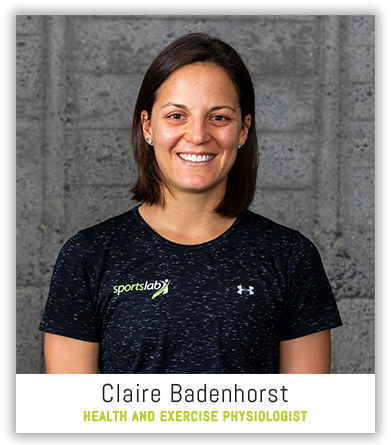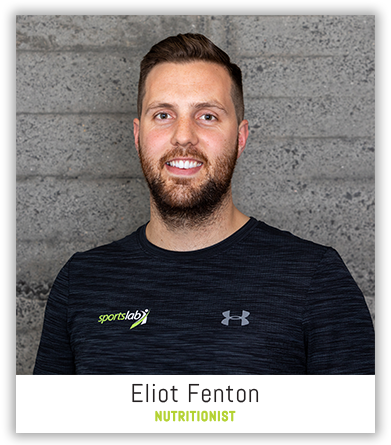Redefining Health: Applying the Science
Here at the Lab, we believe in using science to inform our practice, which means we all love to embrace our inner nerd. A belief within our work community is to share information and upskill our clients, so that they have the guidance and the skills they need to better themselves. We collectively share our knowledge with each other, and with you our clients so that you can get the most benefit in the long run. Our philosophy is not only to treat you, but to work with you and provide you with all the tools to better your performance. For some of you that performance is winning a race at a national or international event and others it is walking pain free with your family. Regardless of your goal, we want to help you achieve it in the best way possible for you.
So what do we mean by using science to inform practice? We are all trained in medical, health and scientific practice and through our own studies we have been taught how to interpret reliable information, summarise it and present it back to you. We are able to review information and critically appraise it and make informed decisions on whether we will use it or not. That doesn’t mean we discredit, alternative methods or ideas, we just apply that critical eye to it and make a judgement on whether it would be the best plan for you.
When it comes to health and the information we have access to, we have so much! We have scientific journal articles (which, let’s be honest, unless you are Claire, most people won’t read for fun and will only read for assignments), podcasts, documentaries, newspaper articles, TV shows, and social media too. At times this can be a bit of an information overload for many people, and knowing what to believe or not can become quite hard. So we would like to try to break down this barrier for you and help you filter information that you see.
Now we are going to be honest, there is always going to be some discrepancy between the results that you read in the scientific article and the results that you will see in real life. This is because, to make sure that they are only testing one thing, a scientist will need to control everything else (and we mean everything) that could influence performance or a result.
For example the gold standard research for testing how valid a sport supplement is, to use what is known as a double blind placebo controlled repeated measures design (yes, a mouthful, we know). This means that one person will perform a minimum of two exercise tests, one with the supplement and one without it (placebo trial). A person will take the supplements and the researcher giving the supplement will not know which test the person is doing, basically neither will have an idea if they are taking the placebo or supplement. This way if the researcher thinks the supplement will work, they will not be able to pass this information onto the person in the test and they will not influence the results (i.e. the placebo effect where if you think something will benefit you then you will often see an improvement, this is a scientific phenomenon and touches on how powerful the brain is).
On top of this, a researcher will instruct a person to control their diet (or may even feed them for 24 hours), they will tell them not to do any hard exercise for 24 hours, not to drink coffee or alcohol for 24 hours, come into a lab in a rested and hydrated state. They will often let them relax before doing exercise in a control lab environment (temperature and humidity controlled, no music, and a set exercise test). There will probably be 1-2 weeks between tests to make sure that the person is well rested and there is no influence from the previous session on the results. The results from this may say something like: XXX supplement gets you a 10% improvement in endurance performance. Sure these results are incredibly valid because the researchers have used the highest calibre of scientific research design to get them, BUT, you will not always see this type of improvement in your performance if you start taking this supplement. Why? Well the setting/s in which we did the test are so unrealistic to normal life. We may not sleep well, we don’t rest for 24 hours before every session, we don’t eat the same controlled diet every day and most of us drink coffee, tea or something with caffeine in it to start the day (and sometimes to get through our days). All these subtle changes to the surrounding environment may mean that we may see some benefit, but you may not get the same amount of improvement because normal everyday life is less controlled than the lab.
Nutrition research is slightly different and may involve larger populations or what is known as epidemiological studies. These studies have their strengths and weaknesses too. Strengths include the power in numbers and it can give you a good idea of trends in a population and their dietary behaviour. Weaknesses of this research is that you cannot always determine cause and effect. For example, we can look at a group of people around 200 people, and 150 of these people eat green peas. Of the 150 people that eat green peas, 130 of them do not get a blocked nose, so we could say that if you eat green peas you will not get a blocked nose. In fact what we have seen are two trends, we have not looked at these 130 peoples habits, physiology or anything else that could affect the risk of getting a cold. So we have not established the cause for getting a blocked nose. Researchers tend to be quite good at stating the lack of cause and effect in their research and will often say; ‘there is a probability that green peas will prevent a cold’ or ‘there is a chance that eating green peas reduces your risk of colds’. This research finding can get picked up by the media or other people and the message suddenly gets changed to; ‘green peas prevent colds’. Subtle change but can have a huge impact! Please don’t go out and start mass buying peas (it is just a fun example).
Research in nutrition that looks at a group of people over a set amount of time, months to years and their habits will make for much more reliable data. It allows nutritional researchers to track habits over time and see the impact it has on health outcomes. The conclusions from these studies allow us to make more definitive conclusions about what dietary habits or behaviours contribute to health outcomes.
The beauty about science is that it constantly evolves and we are always moving forward with our knowledge. But as always we encourage you to be critical of everything you read, especially if you are interested in sport performance. Sport science and nutrition is rapidly evolving and we are constantly learning about new training methodologies, supplements and nutritional interventions to support you as an athlete. One of the areas that is rapidly expanding is the research that is being done in female athletes.
Previously a lot of the original performance science was completed by male athletes in a lab and then applied to females. But as we are now learning, applying male physiology and nutritional interventions to females is definitely not going to get you the same results. In the last few years we have seen a shift in focus and more research is now being done to understand female physiology throughout her natural menstrual cycle. There is a growing body of research looking at how we train and feed a female athlete who goes through different hormone phases and how this impacts her performance.
Another group that does not have a lot of research on them is the adolescent athlete. Adolescent athletes are a challenge for researchers to understand because they are going through an exponential growth phase and are entering puberty and experiencing hormone fluctuations. The rapid growth may affect the adolescent athletes coordination and they will continuously need to relearn some of these movements and skills. These young athletes have constantly changing physiology and require a completely different nutritional approach (more protein, food in general, vitamins and minerals all for growth and development).
So, as you can see, there are strengths to science as well as some natural weaknesses. But our goal in the Lab is to take the science or information from sources, apply that critical thinking and interpretation. We then make an informed decision on the relevance of this to our practice. At all times our goal is to use the best resources and information to make the best decision, treatment and plan for you.
Overall, the key takeaway from today is: be critical of research, ask questions and ask the people that have got the training to critically review scientific information. Let’s always try to understand how the research is conducted (what methods did the researchers use to get to their conclusions). And let us use our skills to help you understand the information that you see every day. We can filter the noise and get the relevant and practical information that you need to improve your health and performance. This will allow you to understand if you will see a result, or if you are reading about a trend in a population, or if you can actually determine cause and effect. We challenge you to be critical with everything you read. And if you want that second opinion – ask us (anyone at the Lab); we are more than happy to talk, debate and get into the science with you.
We reckon Sports Lab is the dream team. And these two are like a dream team within a dream team.
Dr Claire Badenhorst is our physiologist (PhD Exercise Physiology, Academic at Massey University in Auckland) with research focus areas currently in female health, iron deficiency and endurance athletes.
Eliot Fenton is our nutritionist, currently completing his Masters of Science in Nutrition and Dietetics.
As physiology and nutrition are closely aligned, these two more often than not working with our Sports Lab clients in a truly tailored and multidisciplinary way.



